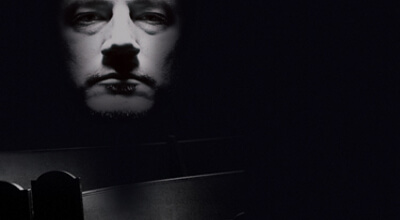The note, which promised that our family would leave Sellerstown “crawling or walking … dead or alive,” followed a series of late-night menacing phone calls that marked the beginning of more than five years of terror against our family—during which time our car tires were slashed, our mailbox was pelted with bullets, and 10 bombings were directed at our house and eventually the church. One bombing blew out our bedroom windows and left shattered glass around my baby brother, Daniel, while he was sleeping in his crib. By God’s grace he was unharmed.
We lived with the dark reality that something awful could strike us at any moment. After several months of being the target of Mr. Watts’ campaign of terror, I never felt safe. I doubt my parents did either.
For me, this tension was greatest as the sun melted into the horizon. Without its warm glow outside my window, I dreaded going to sleep. My mind was tormented by questions that no child should have to entertain.
Why did Mr. Watts hate us? Why did we have to always live in fear? Why didn’t God stop these bad things from happening? Would God really allow one of us to get hurt?
Aware that I, at times, dreaded going to sleep, Momma would kneel down by my bed and recite with me the classic children’s prayer from the 18th century: “Now I lay me down to sleep. I pray the Lord my soul to keep. If I should die before I wake, I pray the Lord my soul to take.” I meant every word of that prayer.
I remember that Momma, much to my surprise, began praying for Mr. Watts. When I asked her about that, she recited Matthew 5:44 (KJV), saying, “Becky, Jesus said, ‘But I say unto you, Love your enemies, bless them that curse you, do good to them that hate you, and pray for them which despitefully use you, and persecute you.'”
Part of loving our enemies, she explained, included forgiving them when they wronged us—even if they hadn’t asked for forgiveness. Even if they weren’t sorry. Momma explained that we had been forgiven by Jesus for all our sins, which is why He expected us, in turn, to forgive others. Forgiveness should be a way of life—even when it was humanly inconceivable to do so.
These lessons on forgiveness would be tested to the end of human understanding by the time I was 7 years old. After more than five years of terrorism at the hands of Mr. Watts, he entered our home on Easter weekend 1978. We were sitting down to supper when, armed with three guns, he barged in. He fired two shots at my daddy and one at my momma. The house was in total chaos.
That day our lives were shattered forever. Momma didn’t make it out of that house alive. And Daddy’s spirit was crushed that horrible evening. Several years later after suffering a severe nervous breakdown, Daddy died without warning while I was at school. I knew when Momma was killed that a man took her life, but when Daddy died, I felt like God took him from me. I wrestled with this pain for more than two years.
Finally, I had a revelation. I found the verse that says God is a Father to the fatherless (see Ps. 68:5). I hung on to those words with everything I had. I also realized that I needed God more than I needed to blame Him. He was there with me through everything we suffered at the hands of a calculating madman. God was the one who brought us through the pain to the purpose as He promises in Romans 8:28.
But the story doesn’t end there.












